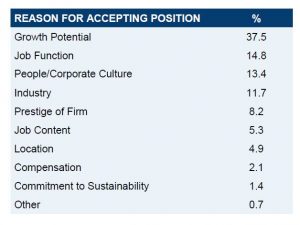Looking For Toronto Consulting And Strategic Management MBAs

Whether you have already chosen your future career path or are still making up your mind, a career in consulting and strategic management is an excellent choice for someone earning their MBA. With roles available at a variety of organizations, strategic managers or management consultants have a number of opportunities, and an advanced degree can make MBA holders extremely competitive candidates for these jobs. Moreover, employment for strategic management positions is projected to grow 14 percent by 2024—a rate much faster than average—and proof that this field isn’t going anywhere soon.
If you are considering a future career in consulting and/or strategic management, many MBA programs are available with specializations that allow you to focus your business education in a particular sphere. In the Toronto metro area, there are a number of schools which provide the opportunity for special electives or MBA majors that focus on a strategic management and consulting education.
The Top Toronto Consulting and Strategic Management MBAs:
DeGroote School of Business – McMaster University
One of the most celebrated Toronto Consulting and Strategic Management MBAs in Canada, the DeGroote School of Business at McMaster University offers a Strategic Business Valuation specialization as part of its program. While the first year of a DeGroote MBA provides a broad range of business topics, the second year gives students the opportunity to choose electives which concentrate in a specific area. Strategic Business Valuation is one such elective, among others like Strategic Marketing.
A specialization in Strategic Business Valuation at DeGroote helps students learn how to make an impact on the market through the calculation of an organization’s worth- all while keeping corporate strategy in mind. Possible roles for students with a specialization in Strategic Business Valuation include Consultant/Senior Consultant, Business Valuation Analyst and Mergers and Acquisitions Analyst.
Ivey Business School – Western University Canada
When a student earns their MBA at Western University Canada’s Ivey Business School, they have the opportunity to add to the business fundamentals of the core curriculum through career focused electives. The school offers six main areas of focus, which include finance, entrepreneurship, marketing, corporate strategy & leadership and international management. However, students may also select from a number of elective courses and create a personalized approach to their business education.
While elements of the Corporate Strategy & Leadership focus would be appropriate for a student pursuing a strategic management career, there are also a number of individual electives which students could take to design their own specialization in consulting. Among these electives are courses such as:
- Management Consulting
- Strategy Implementation
- Financial Strategies for Global Success
- Managing High-Growth Companies
- Competition and Competitive Analysis
Rotman School of Management – University of Toronto
Students the University of Toronto’s Rotman School of Management may choose a major for their MBA to enhance the foundational business knowledge of their degree. A major in consulting is among the options available to students, helping students to “analyze cross-functional business problems and … justify your recommendations, using a diverse set of quantitative and qualitative tools.”
The consulting major at Rotman prepares students for careers in consulting regardless of the setting, from small to large consulting firms and whether in the for-profit or non-profit sector. To complete the major, students must take at least one course from the core category, which includes the options of Management Consulting, Healthcare Consulting, Management Consulting Practicum or Strategic Change and Implementation. They must also select at least one elective course, which includes options such as:
- Catastrophic Failure in Organizations
- Financial Statement Analysis
- Operations Management Strategy
- Business Analysis and Valuation
- Aligning People and Strategy
Schulich School of Business – York University
York University’s Schulich School of Business offers students a specialization in Strategic Management. The course emphasizes the synthesis of techniques from several other areas of business, including accounting, managerial economics, marketing, operations management and organization behavior to better understanding strategy making.
Students in the Strategic Management specialization at York must take six credits of recommended courses and six of recommended or additional courses. Such class options include:
- The Art of the Deal
- Managing Strategic Alliances and Joint Ventures
- Strategy Execution
- Strategic Thinking and Action in Turbulent Environments
- Economic Forecasting and Analysis
Looking For Consulting And Strategic Management MBAs in Atlanta

As a prospective MBA, you probably already know that while an MBA degree provides students with a strong business foundation, many programs also offer students the chance to specialize their education. For students who have a sense of the career path they would like to pursue after earning their degree, earning consulting and strategic management MBAs can provide a competitive edge in the job market.
Students looking to pursue a career in strategic planning may find it useful to earn a specialized MBA with a focus on strategic or organizational management. Given the role of a strategic consultant—helping a company to grow and plan for the future through the consultant’s expertise and analysis—gaining direct experience in consulting and strategic management can be an important step in preparing to enter the field.
Students looking in Atlanta will find a number of schools offering consulting and strategic management MBAs. With these programs, students can still obtain the strong foundation of business knowledge that comes with an MBA degree, while simultaneously strengthening the specific skills needed for a career in strategic management.
We’ve rounded up some of the top Consulting And Strategic Management MBA programs in Atlanta below.
Goizueta Business School – Emory University
The two-year MBA at Emory University’s Goizueta Business School allows students to concentrate their degree in a number of fields, including Strategy Consulting. With a combination of business fundamentals and elective courses, the Goizueta MBA allows students to truly create their own educational experience without forsaking the development of a strong business foundation.
Below are just a few of the recent electives offered for students in the Strategy Consulting concentration at Goizueta:
- Financial Statement Analysis
- Marketing Intelligence & Customer Insights
- Corporate Governance & Firm Value
- Consumer Behavior
- Negotiations
- Strategic Decision/Analysis
- Marketing Channel Strategy & B2B
- Forecasting & Predictive Analysis
J. Mack Robinson College of Business – Georgia State University
The Robinson College of Business at GSU offers an MBA in Organization Management through the Department of Managerial Sciences. The Department has a number of faculty members within the field of Strategy Management, who work with students at all levels of education, from undergraduate students to Ph.D. candidates and everything in between. The faculty work to help students “develop their understanding of how competitive advantage is created in firms, and the decision processes, analytical frameworks and organizational systems and structures that support the creation and maintenance of advantage.”
Below are just a few of the electives offered as part of the Organization Management elective:
- Problem Solving
- Consulting Practice and Theory
- Management Studies Abroad
- Comparative Business Systems
- Organizing to Compete
Scheller College of Business – Georgia Institute of Technology
The Scheller College of Business at GIT offers students the chance to earn an MBA in Strategy & Innovation as part of the full-time MBA program. The program focuses on developing each student’s understanding of how an organization gains and sustains competitive advantage. The program also aims to show the natural intersection between innovation and strategy.
The Strategy & Innovation MBA at Scheller centers around two core courses in Managerial Economics and Strategic Management, along with several elective courses for students to choose from, such as:
- Venture Creation
- Technology Strategy
- Current Thinking in Strategy
- Qualitative Research for Business
- Managerial Economics and Strategic Behavior
Terry College of Business – University of Georgia
UGA’s Terry College of Business offers an MBA with an emphasis in consulting, one of the most popular career paths for Terry graduates. The consulting emphasis at Terry employs both an interdisciplinary and experiential approach, combining classroom experience with hands-on, project based learning. The program develops student’s skills in a variety of areas, building the necessary analytical and practical skills for a consultant to effectively improve their client’s operations. Terry graduates in consulting have gone on to work in management consulting roles at top companies like Booz Allen Hamilton, Deloitte, KPMG and more.
Terry MBA students in consulting have two required courses in Competitive Strategy and a practicum in Innovative Business Projects. Several additional electives are available, including:
- Economics of Management Organizations
- Critical Design Thinking
- Marketing Analytics and Decision-Making
- Business Process Management
The Top Consulting And Strategic Management Chicago MBA Programs

While industries such as investment banking may be attracting fewer MBAs, that’s not the case for consulting. Year-after-year it continues to be the top draw for MBA graduates. The 2015 Prospective Student Survey conducted by the Graduate Management Admissions Council (GMAC) revealed that a job in consulting services or management consulting upon graduation topped the list for both millennial (41 percent) and Gen X (27 percent) respondents. Continue reading…
Hot MBA Jobs: Marketing Director

For that rare breed of extroverted interpersonal ninja who’s able to see the micro amidst the macro, take the temperature of any given cultural moment and articulate complex information to diverse audiences, you just might be a natural marketing director.
MIT Sloan 2016 Employment Report Reveals Slipping Salaries

The MIT Sloan School of Management, late last week, released its 2016 Employment Report for MBAs, revealing slightly slipping salaries year over year and slightly lower percentages of graduates heading into consulting and technology than in prior years. The pharmaceutical/healthcare industry drew the third largest percentage of graduates—5.8 percent—knocking investment banking out of the top three for the first time—perhaps ever. Investment banks drew just 4.7 percent of the 2016 class, down from 6.1 percent last year, 6.8 percent in 2014 and 8.1 in 2013.
As it has for several years running, consulting snapped up the most MIT Sloan grads this past year, 30.5 percent, but that represents a second consecutive year of decline, from 33.9 in 2014 and 32.1 in 2015. The technology sector drew almost as many graduates as consulting—29.3 percent of the class. That was down slightly from 2015’s 30.7 percent, but an increase over 2014’s 26.1 percent and significantly up from the 19.2 percent that went into tech in 2013.
McKinsey and Amazon Compete with Founders’ Dreams
In terms of absolute numbers, more MIT Sloan ’16 MBAs headed off to work for McKinsey than any other company—26, or 6.6 percent of the entire class. Amazon was second, luring 23 recent grads. Falling right between these two top hiring firms were the 24 graduates not seeking employment because they were starting their own businesses, down slightly from last year’s 28 founders. Representing 6.1 percent of the graduating class this year (and 7 percent last year), the ranks of entrepreneurial founders at MIT Sloan rival schools like Harvard Business School, where founders made up 6.8 percent of the most recent class. But they still trail Stanford Graduate School of Business, with its whopping 15 percent of 2016 graduates who started their own ventures upon graduation.
The other consulting giants—Bain and Boston Consulting Group—drew the next largest contingents of recent grads, 17 and 14 respectively. Then came tech firms Microsoft and Google, snapping up nine and eight a piece. Bank of America Merrill Lynch was the sole investment bank named among Sloan’s top hirers in 2016, employing five recent grads.
Salaries Hover at or Below Prior Year Levels
As for how much money Sloan grads are bringing home, the median base salary for 2016 grads remained at 2015 levels, $125,000. The mean base salary for graduates heading into what MIT Sloan breaks out as service industries—consulting, software/internet, investment banking/brokerage, retail, private equity/venture capital, investment management, diversified financial services and media/entertainment—was $126,841, down slightly from the prior year’s $127,601. Grads heading into manufacturing industries—including pharmaceutical/healthcare, computers/electronics, consumer products, automotive/aerospace, oil/energy, telecommunications and transportation/equipment/defense—claimed a mean starting salary of $120,696, down from last year’s $123,416.
Fewer students—66.1 percent—reported signing bonuses in 2016 than the 75.3 percent who reported them in 2015. But 2016 saw a rise in the prevalence and amount of other guaranteed comp. This year, 22.1 percent of graduates reported receiving other guaranteed compensation, with a median of $23,401. The year before, only 18.8 percent expected other guaranteed compensation and the median was lower at $20,500.
The highest starting salary of the Class of 2016—$200,000—went to a student entering what MIT Sloan categorizes as “Manufacturing, Other,” explaining in a footnote that other refers to manufacturing, telecommunications, and transportation/equipment/defense. The lowest, $50,000, went to a grad heading into the retail industry.
MIT Sloan breaks out signing bonuses not by industry but by function. The highest signing bonus for this most recent group of grads was $77,000, awarded to a graduate who is now working in product management/development. The median signing bonus varied depending on function, with leadership development/general management/consulting/marketing/operations roles coming in around the $25,000 mark but investment banking and “finance, other” (including corporate finance, finance operations, treasury and M&A) reporting median bonuses of $49,000 and $47,500 respectively. The median other guaranteed compensation, meanwhile, was $19,500, ranging from $100 at the low end to $89,380 at the upper limit.
Tech Tops Consulting for Second Year Running in Drawing Sloan Interns
A look at where MIT Sloan Class of 2017 MBA students chose to intern shows technology holding the greatest sway, with 29 percent of students heading to tech firms for the summer. This is down from 2015, when 33.2 percent headed into tech for their internships, but it still outdistances the consulting industry, which this past summer drew 21.9 percent. Unlike with full-time jobs, investment banking held onto the third spot in terms of attracting interns, drawing 8.1 percent of the class. Pharma/healthcare, which beat out investment banking in terms of full-time positions, attracted 7.4 percent.
Salaries for summer interns at Sloan edged upward slightly depending on the industry. For students interning in service industries, the median monthly pay was $8,000, no change from the summer before. But the mean monthly pay moved up to $8,633, from $7,771. For students interning in manufacturing industries, the median monthly salary stayed constant at $7,200, but the mean monthly salary dipped from $7,102 last year to $6,871 for the most recent crop of interns.
Timing of Job Offers, Reason for Accepting Jobs
In terms of the timing of job offers, 88.7 percent of MIT Sloan 2016 grads had job offers at the time of graduation, down from 91.5 percent the year before. But by three months out from graduation, 95.3 percent had offers, pretty much on par with the prior year’s 95.6 percent.

Source: MIT Sloan 2016 MBA Employment Report
A little dip in salaries may be no big deal for MIT Sloan grads, according to an additional set of metrics shared in the school’s employment reports. Unlike many peer schools, MIT Sloan includes statistics on why graduates accepted the jobs they did. Far and away the most important factor contributing to what job Sloanies accepted was potential for growth, cited by 37.5 percent of graduates. Job function was the reason reported by 14.8 percent, followed by company culture, cited by 13.4 percent, and then industry, named by 11.7 percent. Far fewer Sloanies accepted the jobs they did because of firm prestige (8.2 percent), job content (5.3 percent), location (4.9 percent), compensation (2.1 percent) or commitment to sustainability (1.4 percent).
View the complete MIT Sloan 2016 MBA Employment Report here.
This article was edited and republished with permissions from Clear Admit.
Consulting and Strategic Management MBAs San Francisco

Landing a consulting job is the ultimate goal for so many business school students and prospective MBAs—the job responsibilities are are rewarding, the pay is very good and plenty of time is spent traveling and networking.
According to the U.S. Bureau of Labor Statistics, employment in the management, scientific and technical consulting industry is expected to grow by 83 percent from 2008-18, representing more than 800,000 jobs. Typical consulting salaries range from $80,000 to $170,000, with senior level consultants earning up to $280,000.
Do you have aspirations of becoming a consultant? If you’re studying in the San Francisco metro, there’s plenty of opportunities for you. Here are some of the best MBA programs in the Bay Area that can help you reach your goals. Continue reading…
